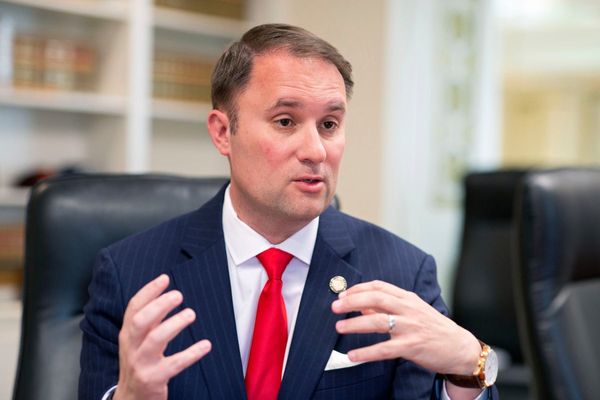
Julian Assange and his legal team likely figured that the deal seeing him return to Australia via an appearance in a US court in Saipan was the best he was going to get. But the Biden administration had its own reasons to want a deal. There was a real chance that Assange’s team would successfully appeal in the UK High Court against the US extradition request on the basis that the Justice Department’s assurances about his treatment in the US couldn’t be accepted.
That would have created a particularly nasty precedent for future extradition requests by the US — one that now won’t happen, at least for the time being.
And credit where it’s due: those of us who criticised the Albanese government for failing to more aggressively pressure the United States to drop its persecution have to now acknowledge the result — especially of Kevin Rudd’s efforts in Washington.
Rudd — who accompanied Assange to court in Saipan this morning — was no longer prime minister in 2010 when WikiLeaks released the cables that would lead to where we are today, and a number of cables sent by US diplomats in Australia contained some decidedly unflattering portraits of him as leader. But as foreign affairs minister, Rudd was unusual in circles of power globally in saying, “Mr Assange is not himself responsible for the unauthorised release of 250,000 documents from the US diplomatic communications network. The Americans are responsible for that.”
Anyone predicting back then that Rudd would be with Assange entering a court in the western Pacific would have been dismissed as a fantasist. Yet from the very moment Sweden issued an Interpol alert for baseless (yep, baseless) rape allegations 14 years ago — allegations both Sweden and the UK went out of their way, over and over again, to avoid ever progressing despite constant offers from Assange to cooperate — Assange warned that the real purpose was to extradite him to the United States.
Plenty of people, powerful people who should have known better, dismissed this claim as groundless, including Julia Gillard’s foreign affairs minister, Bob Carr. Carr later repented and came out as an Assange supporter, but nothing will change that, as foreign affairs minister, he was in a position to do something about Assange’s persecution and preferred trolling his supporters rather than helping him.
It’s wonderful that, after 14 years, including five years in a high security prison, Assange will be free, and can start recuperating, if not recovering, from his persecution. But the damage to journalism, to transparency, to the task of speaking truth to power, is done. He has had to plead guilty to a charge of conspiracy under the US Espionage Act.
There is now an established precedent for journalists, editors and publishers, even those outside the United States, to be prosecuted if they embarrass the US government by revealing classified information (the myth that the WikiLeaks cables were “top secret” is entirely false).
And even if Assange had rejected the deal and stayed to fight on in the UK and won his appeal, much of that damage would still be done. It was done during the long years he hid from the US’ reach in Ecuador’s London embassy. It was done in the speed with which the Trump administration unveiled charges against Assange the moment he was dragged out of the embassy.
It was done in five long years in Belmarsh Prison. It was exemplary punishment for a man who had exposed the real workings of the US imperialist apparatus, via those cables. Via the “Afghan War Diary”. Via the shocking “Collateral Murder” video of a war crime by US personnel in Iraq.
Like Daniel Ellsberg in the early 1970s and like Edward Snowden in 2013, WikiLeaks offered a historic glimpse of how power really worked: how the US systemically abused people held at Guantanamo Bay, how US diplomacy was routinely used in the service of large corporations, how the US Army engaged in atrocities in its “War on Terror” campaigns.
The corporate media, which purports to hold the powerful to account, never really forgave Assange, even as it scrambled to work with him to access the material he had — even now the resentment towards Assange is on display from outlets who see their role as propping up, not exposing, power.
The spate of revelations from WikiLeaks — not merely from the US but also from other countries and corporations — seemed to promise a new era of enforced transparency as government struggled to cope with the sudden slipperiness of information in the digital age. It was, we realised, far easier to move large volumes of information when it was zeroes and ones and not paper.
The remarkable material released by Snowden seemed to confirm that a new era was upon us. Instead, the window of transparency shut — at least on governments, which rapidly armed themselves with draconian powers to go after whistleblowers. The flood of information became a dribble; the big caches of data became hacked personal information up for sale on the dark web, not details of how imperialist governments operated.
Assange, briefly, gave us hope that the secrecy with which governments cloaked their sordid actions could be thrown back, and the operations of power exposed to sunlight. It was this, more than anything, that drove the US to pursue him for so long. It’s why so many handmaidens to the powerful continue to resent him and WikiLeaks.
Whatever you may think of this complicated man, he should be welcomed back home as the hero of an age that was far too short but gave us so much.
Disclosure: As a WikiLeaks supporter, Bernard Keane visited Julian Assange in the Ecuadorean embassy in London in 2015 and coordinated a letter of support for him in 2011.
What are your thoughts regarding Julian Assange’s release? Let us know by writing to letters@crikey.com.au. Please include your full name to be considered for publication. We reserve the right to edit for length and clarity.







